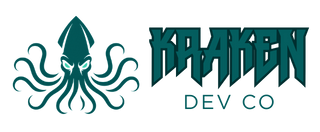
Are Web Developers Still in Demand—or Has the Game Changed?
Ask five developers if web development is worth pursuing, and you’ll hear five different stories—but one consistent theme: demand hasn’t vanished. If anything, the web is expanding, fragmenting, rebuilding, and demanding smarter, faster, more reliable infrastructure. Every site, app, and API needs builders. And not just any builders—ones who can ship clean code, manage uptime, and adapt when frameworks evolve overnight.
At Kraken Dev Co, we don’t deal in hypotheticals. We ship products, audit stacks, and architect real solutions for modern infrastructure. So when clients or candidates ask, “Is web development still a good career?”, our answer is straightforward: yes. But that doesn’t mean it’s easy—or without friction.
Let’s cut through the fluff. Here’s what full-stack web development looks like in 2025, and whether it’s still worth your time.
What Full-Stack Developers Actually Do
“Full-stack” isn’t a buzzword. It’s a functional role that spans both front-end and back-end development—meaning you’re expected to own the entire delivery pipeline, not just one slice of it.
Expect to:
- Write front-end interfaces with React, Vue, or Angular
- Manage server-side logic in Node.js, Django, or Spring
- Connect to databases like PostgreSQL, MongoDB, or MySQL
- Build and test APIs
- Deploy via cloud or containerised environments
- Troubleshoot, optimise, and iterate
You’re not building static brochure sites. You’re building systems. And in a team like Kraken Dev Co, you’re doing it with performance budgets, uptime SLAs, and real user feedback shaping every sprint.
Why Web Development Still Holds Strong
1. Consistent Demand
Unless the web disappears (spoiler: it won’t), web development stays relevant. From e-commerce giants to SaaS startups, every business needs functional, secure, user-friendly digital experiences. The U.S. Bureau of Labor Statistics forecasts thousands of new developer roles each year into the next decade.
No-code tools haven’t replaced developers. They’ve increased demand for custom APIs, authentication layers, performance tuning, and scalable infrastructure.
2. Remote-Ready by Default
Web development was remote before it was trendy. Git workflows, asynchronous stand-ups, and CI/CD pipelines make location irrelevant. If you can ship reliable code and communicate clearly, you can work from anywhere.
Plenty of Kraken’s collaborators and contractors are globally distributed. What matters? Clean code, accountability, and uptime—not your postcode.
3. Fast to Start, Deep to Master
You can get into the game quickly. Platforms like The Odin Project or Scrimba give self-starters a path from zero to junior dev in less than a year.
But don’t mistake access for simplicity. Web development is wide and evolving. Expect to keep learning—new frameworks, performance strategies, architectural patterns. You’ll never “finish” the job. You’ll just get faster at solving problems.
4. Career Agility
Once you’ve got solid full-stack experience, the paths widen: DevOps, cloud engineering, product management, technical leadership. Want to freelance? You’re well-positioned. Want to join a startup? You’re already used to wearing five hats. Want to launch your own SaaS? You’ve got the skill set.
Web development is a career, not a cage.
5. Blends Logic and Creativity
You’re solving infrastructure problems and designing user interfaces. It’s logical, but it’s also visual and functional. You’re not just writing code—you’re shaping the way users interact with tools, brands, and systems.
As many developers say: “You get to see what you build.” That feedback loop matters.
The Real Trade-Offs You Should Expect
It’s not all smooth sailing. Here’s what developers at Kraken Dev Co and beyond wish more people understood.
1. Learning Never Ends
Frameworks evolve. Best practices shift. The JavaScript ecosystem alone can change quarterly. You have to enjoy learning—or at least accept that it won’t stop.
If that sounds exhausting, this might not be your lane.
2. Fierce Competition
Web dev is accessible, which means it’s crowded—especially on the front-end. Entry-level roles attract global applicants. Strong portfolios, side projects, and open-source contributions can give you an edge.
At Kraken, we hire based on output and problem-solving, not just credentials. But we also expect initiative.
3. Stack Inflation
The “full” in full-stack keeps expanding. You might be expected to write UI code, manage APIs, containerise services, run CI/CD, and handle security concerns. It’s wide and demanding.
If you’re not comfortable wearing multiple hats—or at least context switching frequently—this could burn you out fast.
4. Not Always the Highest Paid
Compared to machine learning engineers or systems architects, web developers might earn less. But that gap shrinks with seniority and specialisation.
For those with a business mindset, full-stack skills open doors to build your own products or lead small, scrappy teams. That can translate into higher upside over time.
5. Client-Facing Pressure
If you’re freelance or client-facing, things go wrong—and you’ll be the one to fix it. Downtime, bad deployments, flaky integrations—they land on your desk.
That pressure isn’t for everyone. But if you can handle it, you become indispensable.
What’s in a Stack? Common Tech for Full-Stack Devs
Stacks vary, but some popular configurations include:
Front-End
- Languages: HTML, CSS, JavaScript
- Frameworks: React, Vue, Angular
- Tools: Tailwind CSS, Bootstrap
Back-End
- Languages: Node.js, Python, Java, PHP
- Frameworks: Express, Django, Spring Boot
- Databases: PostgreSQL, MongoDB, MySQL
- Authentication: JWT, OAuth2
Hosting & DevOps
Developer Toolkit
- Git/GitHub for version control
- Postman for API testing
- VS Code, linters, and static analysis tools
Kraken engineers lean towards battle-tested tools that scale. But we’re stack-agnostic. What matters is reliability, maintainability, and speed.
Real Advice from the Front Lines
From internal dev chats to peer reviews, here’s what Kraken engineers repeat often:
- Don’t fixate on frameworks. Master HTTP, REST, and databases first.
- Decompose problems. Language syntax is easy. Problem solving is hard.
- Build things. A working CRUD app is better than 10 tutorials.
- Contribute to open-source. It shows initiative and strengthens team skills.
- Be consistent. Reliability matters more than genius.
Who Thrives in Web Development?
Web development suits people who:
- Like solving puzzles and debugging logic
- Are comfortable with shifting tools and tech
- Want mobility and aren’t afraid to self-manage
- Prefer building and shipping over theorising
- Can operate independently—and collaborate under pressure
It’s not ideal for those who:
- Hate context switching
- Expect linear progress or static responsibilities
- Need long-term hand-holding or rigid career paths
- Avoid learning outside working hours
Getting Started: The Smart Path
- Learn the Basics: HTML, CSS, JavaScript
- Pick a Back-End Language: Python (Django/Flask) or JavaScript (Node.js)
- Build Projects: CRUD apps, login flows, e-commerce mockups
- Share Code: Use GitHub, host on Netlify or Vercel
- Engage: Contribute to open-source or join developer communities
Real-world practice beats perfect theory.
Final Verdict: Still Worth It?
Yes. But only if you’re ready to show up, code hard, fail fast, and stay sharp.
Full-stack web development in 2025 is a practical, rewarding, and challenging path. It won’t make you rich overnight. But it will teach you how the internet runs—and how to build what matters.
At Kraken Dev Co, we don’t romanticise this career. We respect it. And we hire the ones who build, solve, iterate, and scale under pressure.
If that sounds like your pace, the web still needs you.
Ready to build? KrakenDevCo.com is hiring. Or hit us up to collaborate on your next digital product.



